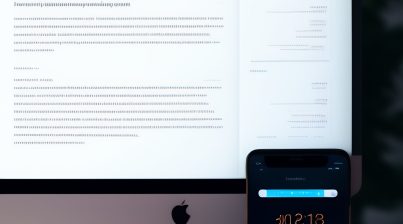Decentralized Finance, or DeFi, has emerged as a revolutionary force in the financial industry, offering a new paradigm for conducting financial transactions and services.
Unlike traditional finance, which relies on centralized intermediaries like banks, DeFi leverages blockchain technology to create an open and permissionless financial ecosystem.
This article aims to provide an overview of DeFi, its key features, benefits, and potential for reshaping the future of finance.
What is DeFi?
Decentralized Finance (DeFi) refers to financial applications and protocols built on decentralized networks, primarily utilizing blockchain technology. These decentralized systems aim to enable peer-to-peer transactions and eliminate the need for intermediaries, allowing users to have complete control and ownership over their funds.
Key Features of DeFi
DeFi platforms are open to anyone with an internet connection, enabling global participation without the need for traditional banking infrastructure or geographic limitations.
Transactions and smart contract operations in DeFi are recorded on public blockchains, ensuring transparency and audibility.
DeFi leverages the robust protection of blockchain networks, making it difficult for hackers to compromise user funds or manipulate transactions.
DeFi protocols can interact and integrate, enabling composability and the creation of new financial instruments and services.
Core Components of DeFi
DeFi applications utilize self-executing smart contracts, which automate and enforce the terms of financial agreements without the need for intermediaries.
DEXs allow users to trade cryptocurrencies directly with each other, eliminating the need for centralized exchanges and custodial control over funds.
Stablecoins, pegged to a fiat currency or an algorithmic mechanism, provide stability and serve as a medium of exchange within the volatile cryptocurrency ecosystem.
DeFi platforms offer decentralized lending and borrowing services, where individuals can lend their assets and earn interest or borrow funds by collateralizing their cryptocurrencies.
Oracles provide external data to smart contracts, enabling DeFi applications to interact with real-world events and off-chain data.
Benefits of DeFi
DeFi opens up financial services to the unbanked and underbanked populations worldwide, providing access to banking, loans, and investments without traditional barriers.
DeFi allows users to retain control over their financial data and identity, reducing the reliance on centralized entities that collect and monetize user information.
By removing intermediaries and automating processes, DeFi significantly reduces transaction fees, making financial services more affordable and accessible to all.
The open and permissionless nature of DeFi fosters innovation, enabling developers to build new financial applications, products, and services.
Future Outlook
DeFi has witnessed tremendous growth in recent years, with increased adoption, innovation, and a growing ecosystem of decentralized applications.
The future of finance unleashed by DeFi holds immense potential to transform traditional financial systems, empower individuals, and reshape the global economy.
However, overcoming challenges, addressing regulatory concerns, and improving user experience will be crucial for DeFi to achieve mainstream adoption and become an integral part of the financial landscape.
Conclusion
Decentralized Finance (DeFi) represents a paradigm shift in accessing and utilizing financial services. By leveraging blockchain technology, DeFi offers openness, transparency, security, and innovation in the financial ecosystem.
While challenges and risks exist, the future of finance unleashed by DeFi holds excellent promise to democratize finance, enhance inclusivity, and foster global economic empowerment.
As the DeFi space continues to evolve, it will be fascinating to witness how it shapes the future of finance, unlocking new opportunities and transforming the traditional financial landscape.




